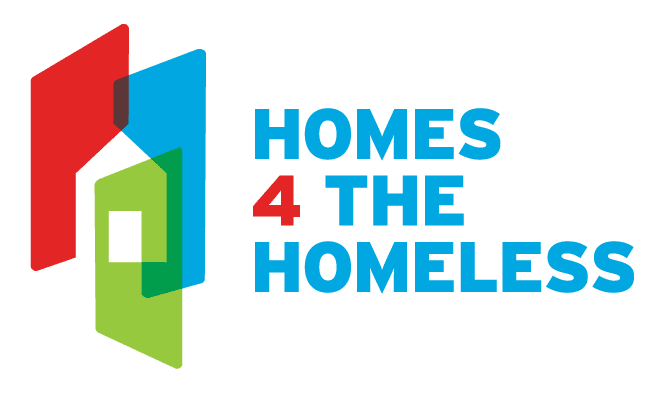20-Year Study Proves Anti-Camping Bans and Quality-of-Life Ordinances Waste Money and Fail to Reduce Homelessness
When homelessness spills out onto street corners in the form of encampments, the visible aspect of this makes the general housed public uncomfortable. Political leaders often resort to sweeps or encampment clearings as a temporary measure to alleviate the concern.
Encampment sweeps have long proven to be ineffective in resolving the homeless crisis. Many presume the temporary cleanup gives the public an illegitimate sense of ease. There is an illusion that the problem has gone away, when in reality it has merely been shuffled down the street.
However, a new study published by Next City authors shows that criminalizing homelessness carries no communal benefits whatsoever. It doesn’t even serve to make the problem appear less visible.
As it turns out, the public is no longer fooled when city leaders sweep homeless people to other sections of the city. Costly. Counterproductive. Futile. The only outcome of these sweeps is cruelty. Perhaps that is their only purpose.
Encampment Sweeps Cause Irreparable Harm To Homeless Community Members
46-year-old Cornelius Taylor had been living in an Atlanta-based homeless encampment for at least a decade. The tents were collapsing. Graffiti lined the walls. Longtime residents clutched the last of their belongings, desperately trying to hold onto their humanity.
Old Wheat Street was not a cozy space to hunker down, but for Taylor and his long-term girlfriend, Lolita Griffeth, it was home until the ill-fated day of January 16, 2025, at least. That was the day the bulldozers moved in to clear the encampment where Cornelius Taylor lay in slumber.
Sources from Atlanta Magazine say he was in a deep sleep when the tragedy occurred.
A front loader truck hit him swiftly and fatally. His liver was lacerated. His pelvis was spliced. The autopsy report revealed extensive internal bleeding. The story is sad, not uncommon.
Encampment Sweeps Strip People of Safety, Belongings, and Even Their Lives
Many unsheltered people lose their lives or their livelihoods to homeless encampment clearings. Rarely are they offered the shelter and services they are promised. Most often, they are forced to return to the very streets they once were driven out of. The only difference is that during the transitional phase, one or more of the following likely occurred:
- Arrest
- Fines
- Loss of clothing
- Loss of identifying documents
- Loss of potentially lifesaving prescription medication
- Loss of a friend, loved one, or connection to a social service worker
Social outreach workers often rely on an unsheltered homeless person residing in the same location. This allows them to connect them to the necessary resources. If unsheltered people are constantly being moved around, it is that much more difficult to get them into housing.
Next City researchers Hannah Lebovits and Andrew Sullivan, whose paper entitled “Do Criminalization Policies Impact Local Homelessness?” was published in Policy Studies Journal, believe the claim may imply that homeless people have to suffer for the collective good of everyone around them. This theory is supported by the ongoing omission of a lack of affordable housing in political conversations surrounding homelessness, along with the fact that mainstream media continues to tie homelessness to personal failures rather than social system flaws.
Criminalizing Homelessness Does Not Have Positive Outcomes for Anyone, Communal or Otherwise
The study was a deep dive into decades’ worth of anti-homeless ordinances enacted across 100 U.S. cities between 2000 and 2021. Researchers drew data from local entities in charge of federal homelessness funding from the Department of Housing and Urban Development. The results were shocking, even for advocates.
Criminalizing Homelessness Caused the Problem to Marginally Increase
Places where quality-of-life ordinances and anti-camping bans are heavily enforced did not see any decrease in their unsheltered homeless population, despite spending hundreds of millions and sometimes billions of dollars on the endeavor.
Surprisingly, these regions saw an average 2.2% increase in unsheltered homelessness, a number that researchers claim is statistically insignificant, but reflective of how counterproductive these policies are.
Since the ordinances drain taxpayer dollars without rectifying the problem, they offer zero benefit for community members while simultaneously perpetuating the harmful stereotype that homeless people are blameworthy, dangerous, or flawed. To quote the study’s authors directly:
“This finding is consistent with the argument that these laws exist to impose costs on people with the identity, rather than to provide a community-level benefit by reducing the Number of Homeless individuals within a given local area. Thus, not finding a reduction in homelessness supports the theoretical argument that criminalization policies are created and enforced with the intention of tying the concept of deviance to a specific identity.”
In an exclusive exchange with Invisible People reporters, the founder and Director of the Homeless Rights Advocacy Project at Seattle University School of Law, Professor Sara Rankin, agreed with these sentiments.
“Cities pour money into police, courts, and jails to punish people for being poor, when those same dollars could actually solve homelessness with housing and support,” said Professor Rankin. “But criminalizing homelessness isn’t just cruel or morally indefensible, it’s economically absurd: studies repeatedly show it costs more to ticket, arrest, and incarcerate than it does to end homelessness.”
Tell Your Representatives It’s Time To Legislate the Human Right to Housing
Entirely too much of the homeless reduction budget is being spent enforcing laws that statistically do not reduce the homeless condition, even in the eyes of the public. The curtain has been pulled back on these counterproductive policies, yet city leaders continue to enforce them unabashedly and often violently. Tell your local representatives to make housing a constitutional human right today.
